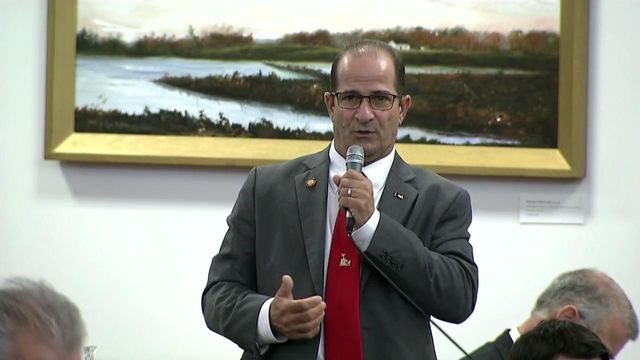House OKs revised elections oversight overhaul
The state House voted 68-42 Thursday in favor of a new plan to combine oversight of state elections and ethics enforcement.
Posted — UpdatedThe move comes almost three weeks after a three-judge panel ruled a December attempt by state lawmakers to merge the State Board of Elections with the State Ethics Commission was an unconstitutional power grab by the General Assembly that undercut the governor's ability to ensure fair elections.
Sponsor Rep. David Lewis, R-Harnett, said Senate Bill 68 addressed the concerns of the judges by allowing the governor to appoint all eight members of the new board – the overturned law called for lawmakers to appoint four members – and by requiring only a majority vote, not a six-vote super-majority, to carry out election-related actions.
"This is about combining like areas of government in order to streamline operations," Lewis said, adding the move would "foster bipartisanship, which is so desperately needed."
The board would be split evenly between Democrats and Republicans. While Lewis and other supporters see that as a way to build bipartisanship, Rep. Darren Jackson, D-Wake, sees it as a recipe for inaction.
"One party can control it by never agreeing to anything," Jackson said, comparing the new setup to the similarly split Federal Election Commission, which is often derided as dysfunctional.
Other Democrats complained at how the bill was shoved through the House in less than three days with no public input.
Senate Bill 68 originally dealt with student attendance recognition programs in local school districts, but Lewis stripped out that language late Monday night and introduced the revised legislation in a House Elections committee on Tuesday afternoon.
"Here we go again with bills being passed in the middle of the night," said Rep. Mickey Michaux, D-Durham.
The measure now returns to the Senate for a final vote to agree with the House changes before going to Gov. Roy Cooper, who is likely to veto it after challenging the earlier law in court.
Related Topics
• Credits
Copyright 2024 by Capitol Broadcasting Company. All rights reserved. This material may not be published, broadcast, rewritten or redistributed.






